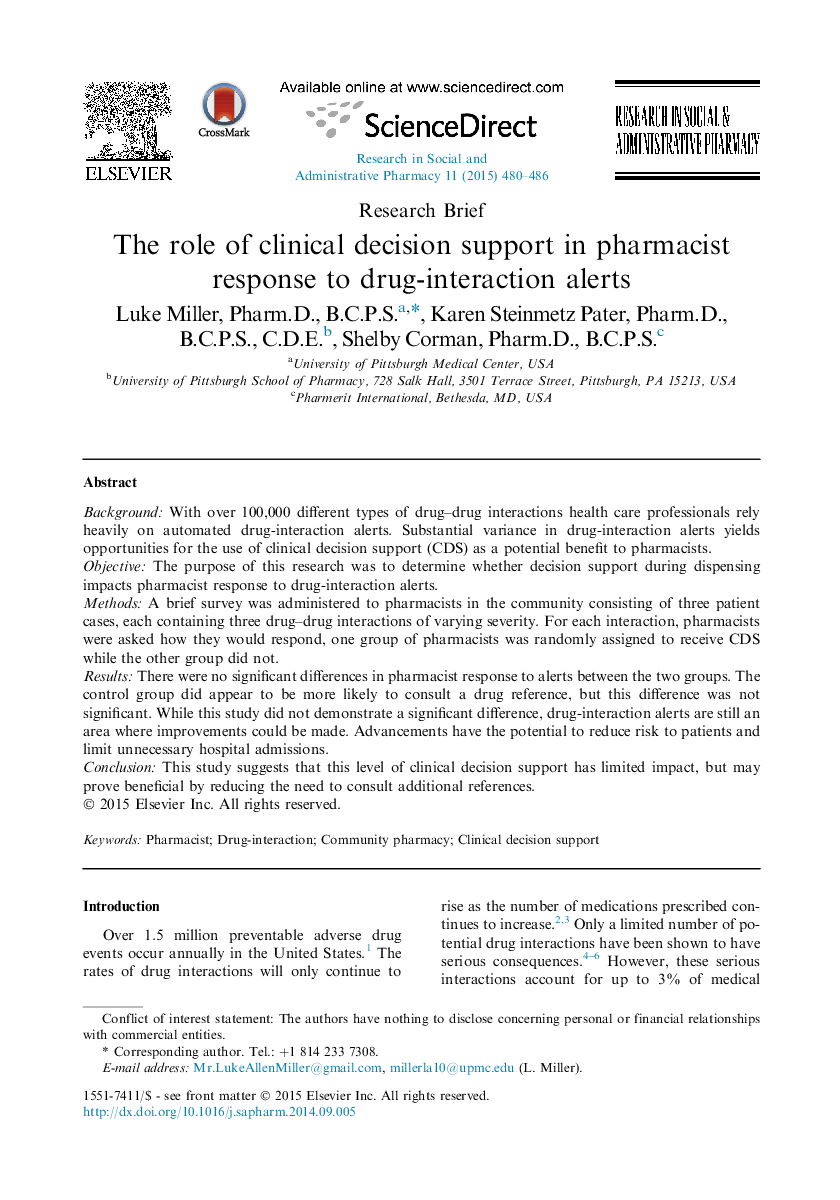| Article ID | Journal | Published Year | Pages | File Type |
|---|---|---|---|---|
| 2508336 | Research in Social and Administrative Pharmacy | 2015 | 7 Pages |
BackgroundWith over 100,000 different types of drug–drug interactions health care professionals rely heavily on automated drug-interaction alerts. Substantial variance in drug-interaction alerts yields opportunities for the use of clinical decision support (CDS) as a potential benefit to pharmacists.ObjectiveThe purpose of this research was to determine whether decision support during dispensing impacts pharmacist response to drug-interaction alerts.MethodsA brief survey was administered to pharmacists in the community consisting of three patient cases, each containing three drug–drug interactions of varying severity. For each interaction, pharmacists were asked how they would respond, one group of pharmacists was randomly assigned to receive CDS while the other group did not.ResultsThere were no significant differences in pharmacist response to alerts between the two groups. The control group did appear to be more likely to consult a drug reference, but this difference was not significant. While this study did not demonstrate a significant difference, drug-interaction alerts are still an area where improvements could be made. Advancements have the potential to reduce risk to patients and limit unnecessary hospital admissions.ConclusionThis study suggests that this level of clinical decision support has limited impact, but may prove beneficial by reducing the need to consult additional references.
